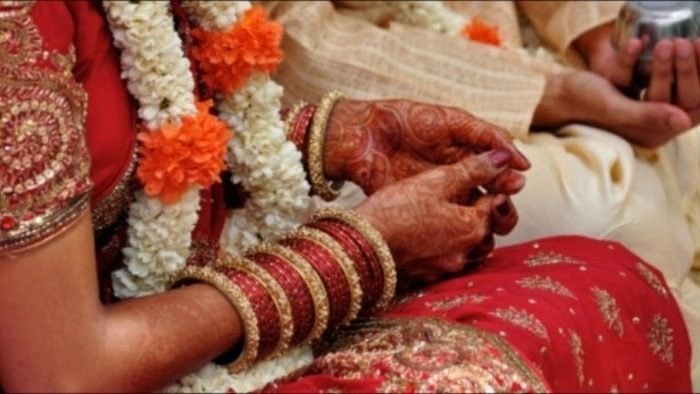
Representative image of marriage.
Credit: iStock Photo
The government’s stand against the idea of marital rape, as conveyed to the Supreme Court in an affidavit, was on expected lines because it has in the past given indications of its position. This was the first time that it has put on record its opposition to scrapping the marital rape exception. The government retained the exception, which existed in the Indian Penal Code (IPC), in the Bharatiya Nyaya Samhita (BNS), too.
In 2022, it had told the Delhi High Court that the issue needed wider consultations, though it was clear where its thinking lay. It has now told the apex court that while a husband certainly did not have a fundamental right to violate the consent of his wife, terming such a violation as “rape” was “excessively harsh and, therefore, disproportionate.” The affidavit went on to state that the act “colloquially referred to as marital rape ought to be illegal and criminalised, but the consequences of the violation of consent within marriage differ from those outside it”.
The position is contradictory. While the government seems to accept that a woman’s consent has value, it does not consider its violation within the marriage as wrong. This is because it thinks removing the exception would interfere with the institution of marriage, and sex within marriage is based on reciprocal rights, irrespective of consent. The government has also said there are remedies available in the law against domestic violence to deal with marital rape.
But these notions are based on a fundamentally wrong idea of the rights of a woman as a citizen, and of consent. Consent cannot have different meanings in different contexts. While claiming that a woman’s consent is the same whether she is married or not, the affidavit says it has to be weighed against “the element of overwhelming public interest in preserving the marital institution”.
The idea that there is public interest in preserving the “marital institution” even when the husband is violating it is debatable. The right of a woman to her body and her mind should come before her supposed “duties” in a marital relationship. Ironically, the government quotes Article 14, which guarantees the right to equality, to claim that sexual violations in marital and non-marital spaces are two different “situations”.
It amounts to telling women that they have the right to consent but cannot use it. Women should have the power to exercise their right to their body in any situation, just as they have the power to exercise their other fundamental rights like the right to property or the right to free speech. It also derives from the right to privacy, which the Supreme Court has held to be an inalienable right.
A rape is a rape in whatever context it happens. At a fundamental level, the government must ask itself: If rape within marriage is to be condoned, then would women, going forward, willingly enter the institution of marriage at all, which, in the first place, is what the government wants to preserve?